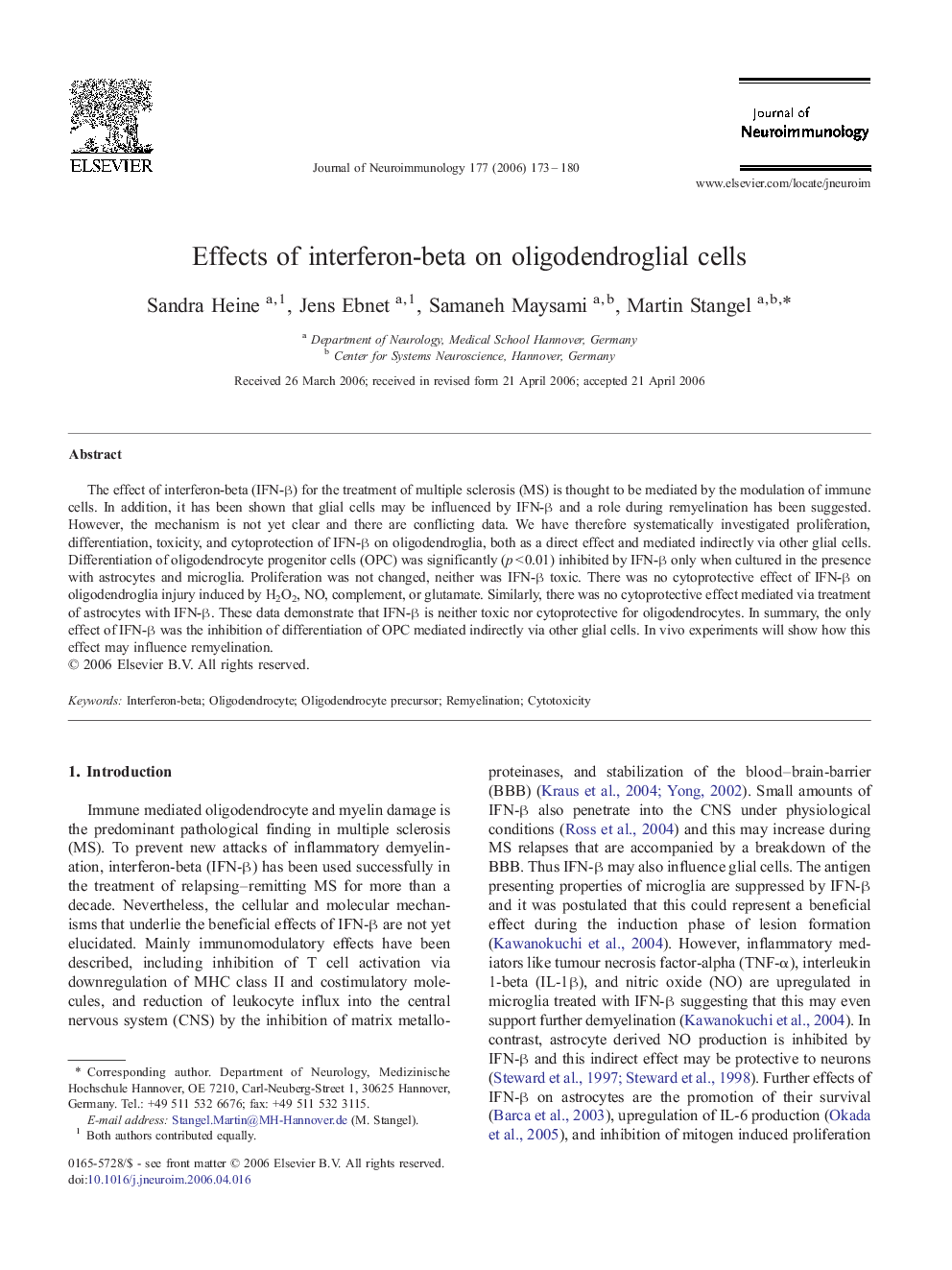| Article ID | Journal | Published Year | Pages | File Type |
|---|---|---|---|---|
| 3065925 | Journal of Neuroimmunology | 2006 | 8 Pages |
The effect of interferon-beta (IFN-β) for the treatment of multiple sclerosis (MS) is thought to be mediated by the modulation of immune cells. In addition, it has been shown that glial cells may be influenced by IFN-β and a role during remyelination has been suggested. However, the mechanism is not yet clear and there are conflicting data. We have therefore systematically investigated proliferation, differentiation, toxicity, and cytoprotection of IFN-β on oligodendroglia, both as a direct effect and mediated indirectly via other glial cells. Differentiation of oligodendrocyte progenitor cells (OPC) was significantly (p < 0.01) inhibited by IFN-β only when cultured in the presence with astrocytes and microglia. Proliferation was not changed, neither was IFN-β toxic. There was no cytoprotective effect of IFN-β on oligodendroglia injury induced by H2O2, NO, complement, or glutamate. Similarly, there was no cytoprotective effect mediated via treatment of astrocytes with IFN-β. These data demonstrate that IFN-β is neither toxic nor cytoprotective for oligodendrocytes. In summary, the only effect of IFN-β was the inhibition of differentiation of OPC mediated indirectly via other glial cells. In vivo experiments will show how this effect may influence remyelination.
